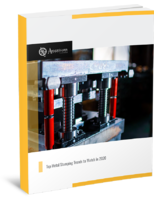Universal Process / Temperature Controllers
Proces Controller combines PLC, RTU and DCS architectures.
Share:
Press Release Summary:
 ControlWave LP utilizes 486-based CPU design for SCADA applications. It offers isolated I/O with wide temperature operation of -40 to +70 deg C for remote sites, and low power consumption for solar applications. Local I/O provides 16 DI, 8 DO, 8AI, 4HSC and up to 8 optional AO. ControlWave LP has 5 serial-communication ports and one 10 Mb Ethernet I/P port. Single controller provides logic, process control, measurement, calculations and data storage.
ControlWave LP utilizes 486-based CPU design for SCADA applications. It offers isolated I/O with wide temperature operation of -40 to +70 deg C for remote sites, and low power consumption for solar applications. Local I/O provides 16 DI, 8 DO, 8AI, 4HSC and up to 8 optional AO. ControlWave LP has 5 serial-communication ports and one 10 Mb Ethernet I/P port. Single controller provides logic, process control, measurement, calculations and data storage.Original Press Release:
Bristol Babcock Announces ControlWave LP Innovation In Process Automation
Watertown, CT, December 19, 2001 - Bristol Babcock Inc. introduces the newest member of the ControlWave family of Process Automation Controllers. ControlWave is a revolutionary
Process Automation Control system based on worldwide industry standards for programming and communications. ControlWave combines the best technologies provided by PLC, RTU and DCS
architectures into a Hybrid system ideally suited to virtually all industrial process control applications.
ControlWave LP now brings all of the capabilities and open functionality of its big brother to a space efficient 8 1/2" x 12 1/2", RTU style package. ControlWave LP utilizes a high
performance 486 based CPU design to meet today's demanding SCADA applications. ControlWave LP offers rugged, isolated I/O for long term reliability, wide temperature operation from -40 to +70 deg C for remote sites and low power consumption for solar applications. Additionally ControlWave has been designed to meet CE, Class I, Div. 2 and international hazardous location requirements.
The local I/O provides 16 DI, 8 DO, 8AI, 4 HSC and up to 8 optional AO. Additionally, a wide variety of remote Ethernet I/O modules provide a cost-effective method for I/O expansion access
throughout the plant or even within an enclosure.
Bristol Babcock's expertise in communications and advanced control functionality are leveraged in ControlWave LP, enabling capability for large or small systems. ControlWave LP has five
serial communication ports and one 10 Mb Ethernet I/P port for exceptional flexibility. ControlWave LP facilitates communication with other devices through widely accepted
networks such as TCP/IP open Modbus, and serial Modbus. For open access to most HMI products, Bristol Babcock offers a flexible, easy to implement OPC Server. And of course, ControlWave LP comes with the popular Bristol BSAP protocol as a standard feature.
The ControlWave Designer programming software supports all five IEC 61131-3 programming languages and is extended with a powerful library of process control function blocks. With this
combination, ControlWave LP allows the use of a single controller for logic, process control functions, measurement, calculations and data storage. These capabilities are further enhanced with time stamped alarming, audit and historical archive storage within the RTU itself.




